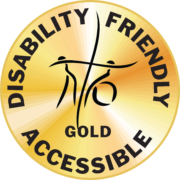When Pat Bellingrath and Celia Ferguson met in conversation about the conviction they felt surrounding the treatment of Black community members in 2016, they never imagined their dream to do justice work across their church conference would come true.
Now, the pair, along with 20 other program planners, will host a four-week Sacred Conversations on Race (COR) series for the Tennessee Valley district of the Holston Conference.
“Conversation is the way you begin to change the world,” Ferguson says. “Conversation is how you build relationships to make the change.”
Humble Beginning
Conversation looks different than it did when the COR Leadership group met for the first time. In 2016, Bellingrath and Ferguson were joined by Stephanie Blue, Rev. Leah Burns, Sandra Dimmick, Jean Galyon and Ivee Miles-Slater around a kitchen table in discussion.
“We heard stories that (proved) we just didn’t know how the world worked,” Ferguson says, providing “The Talk” about racism as an example. “There were incredibly difficult conversations we had. They were emotional.”
In November 2016, about 100 people of all backgrounds and faiths attended the first COR program, sitting around tables to converse with people unlike themselves.
Reflecting and understanding a need for more conversation, the original planning team of seven grew to 22, with a focus on eliminating racism in the larger United Methodist Church, starting with the Holston Conference.
“Our hope is to get churches to start conversations on these issues,” Ferguson says, adding that it’s not only amongst members, but on Sunday mornings during worship, too.
“For me, this is the Gospel of Jesus Christ,” Bellingrath adds. “It really is, to me, a cornerstone of our faith.”
Living the Gospel
When planning the COR program, the leadership team drew from the second of the Baptismal Vows and Article IV and V of the United Methodist Book of Discipline.
The second of the Baptismal Vows
Do you accept the freedom and power God gives you to resist evil, injustice, and oppression in whatever forms they present themselves?
Article IV. Inclusiveness in the Church — The United Methodist Church is a part of the church universal, which is one Body in Christ. The United Methodist Church acknowledges that all persons are of sacred worth. All persons without regard to race, color, national origin, status, or economic condition, shall be eligible to attend its worship services, participate in its programs, receive the sacraments, upon baptism be admitted as baptized members, and upon taking vows declaring the Christian faith, become professing members in any local church in the connection. In The United Methodist Church no conference or other organizational unit of the Church shall be structured so as to exclude any member or any constituent body of the Church because of race, color, national origin, status or economic condition.
Article V. Racial Justice — The United Methodist Church proclaims the value of each person as a unique child of God and commits itself to the healing and wholeness of all persons. The United Methodist Church recognizes that the sin of racism has been destructive to its unity throughout its history. Racism continues to cause painful division and marginalization. The United Methodist Church shall confront and seek to eliminate racism, whether in organizations or in individuals, in every facet of its life and in society at large. The United Methodist Church shall work collaboratively with others to address concerns that threaten the cause of racial justice at all times and in all places.
COR also acknowledges the past of the church, including moments and eras the Methodist Church didn’t treat all races the same, and the times it did.
“We have to know our history,” Bellingrath says. “We really have to acknowledge the history of the United Methodist Church.”
Rooted in history and these texts, the program also relies on the sharing of stories as a powerful way to truly understand and connect to the experiences of others. Each session of the February Sacred Conversations on Race series will include time for conversation and stories, including a night of guest speakers in Session 2.
At the end of the program, the COR Leadership Team hopes that attendees will walk away with action steps toward biblical justice.
“Our call is to suffer alongside those who are oppressed,” Ferguson says, adding that although it’s uncomfortable to have these conversations, it’s the cross we bear. “Even though my white skin gives me an out, my heart can’t give up.”
Learn more and register for the Conversations on Race program here.
Program Details:
Session 1
Tuesday, February 2, 7pm-8:30pm
Starting a sacred conversation on racism: challenges, history, how to begin, how to engage in difficult conversations and a little John Wesley. Sharing of stories and time for conversation.
Session 2
Tuesday, February 9, 7pm-8:30pm
A host of speakers will be joining us this night from Holston and other conferences to speak to racism in the UMC and why we must engage with one another to end racism in our beloved church. Time for discussion and sharing of stories.
Session 3
Tuesday, February 16, 7pm-8:30pm
Discussing white privilege and systemic racism: what these are and how they affect every aspect of our lives. Sharing of stories and time for conversation.
Session 4
Tuesday, February 23, 7pm-8:30pm
Continuing the conversation: where do we go from here and how the UMC can become the beloved community. Time for conversation, discernment and commitment.



